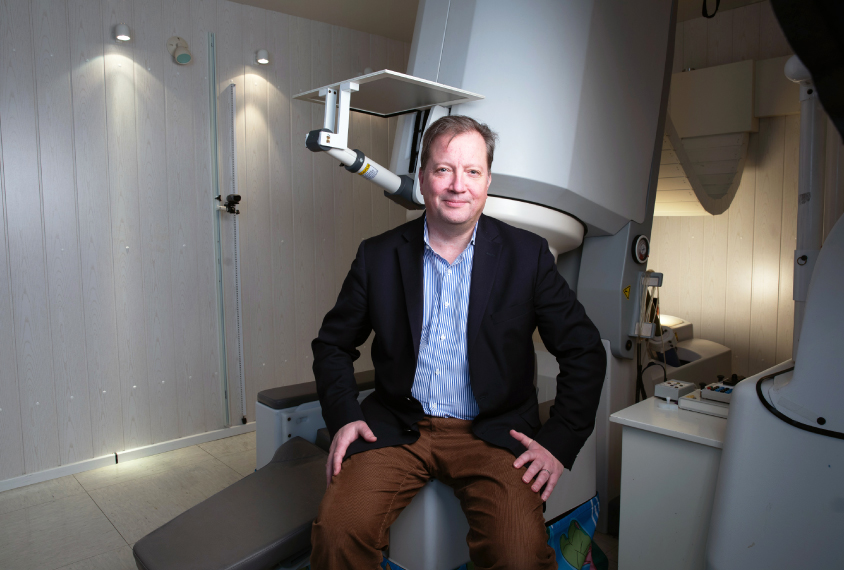Timothy Roberts is Oberkircher Family Chair in Pediatric Radiology and vice-chair of radiology research at the Children’s Hospital of Philadelphia. He is also professor of radiology at the University of Pennsylvania.
Timothy Roberts
Professor of radiology
Children's Hospital of Philadelphia
From this contributor
In quest for autism biomarkers, this technique has magnetic appeal
To find biological markers of autism, scientists would be wise to measure the brain's electrical activity along with the resulting magnetic fields.

In quest for autism biomarkers, this technique has magnetic appeal
When tracking brain activity, timing can be key
A brain imaging technique called magnetoencephalography characterizes not just what is happening in the brain, but also where and when, making it ideally suited for studying autism.

When tracking brain activity, timing can be key
Imaging biomarkers could signal autism spectrum disorder
There does not appear to be a single genetic or environmental cause of autism, and given the heterogeneity of symptoms, coming up with a clear yes or no test for autism is challenging. Timothy Roberts argues that imaging and electrophysiology are key in the search for autism biomarkers.

Imaging biomarkers could signal autism spectrum disorder
Explore more from The Transmitter
Two primate centers drop ‘primate’ from their name
The Washington and Tulane National Biomedical Research Centers—formerly called National Primate Research Centers—say they made the change to better reflect the breadth of research performed at the centers.

Two primate centers drop ‘primate’ from their name
The Washington and Tulane National Biomedical Research Centers—formerly called National Primate Research Centers—say they made the change to better reflect the breadth of research performed at the centers.
Post-infection immune conflict alters fetal development in some male mice
The immune-conflict between dam and fetus could help explain sex differences in neurodevelopmental conditions.

Post-infection immune conflict alters fetal development in some male mice
The immune-conflict between dam and fetus could help explain sex differences in neurodevelopmental conditions.
Three ecological psychologists on the right and wrong ways to use the field’s principles in neuroscience
Matthieu de Wit, Luis H. Favela and Vicente Raja weigh in on the recent trend of neuroscientists importing concepts from ecological psychology, the study of how an organism’s interactions with its environment explain perception and action.
Three ecological psychologists on the right and wrong ways to use the field’s principles in neuroscience
Matthieu de Wit, Luis H. Favela and Vicente Raja weigh in on the recent trend of neuroscientists importing concepts from ecological psychology, the study of how an organism’s interactions with its environment explain perception and action.